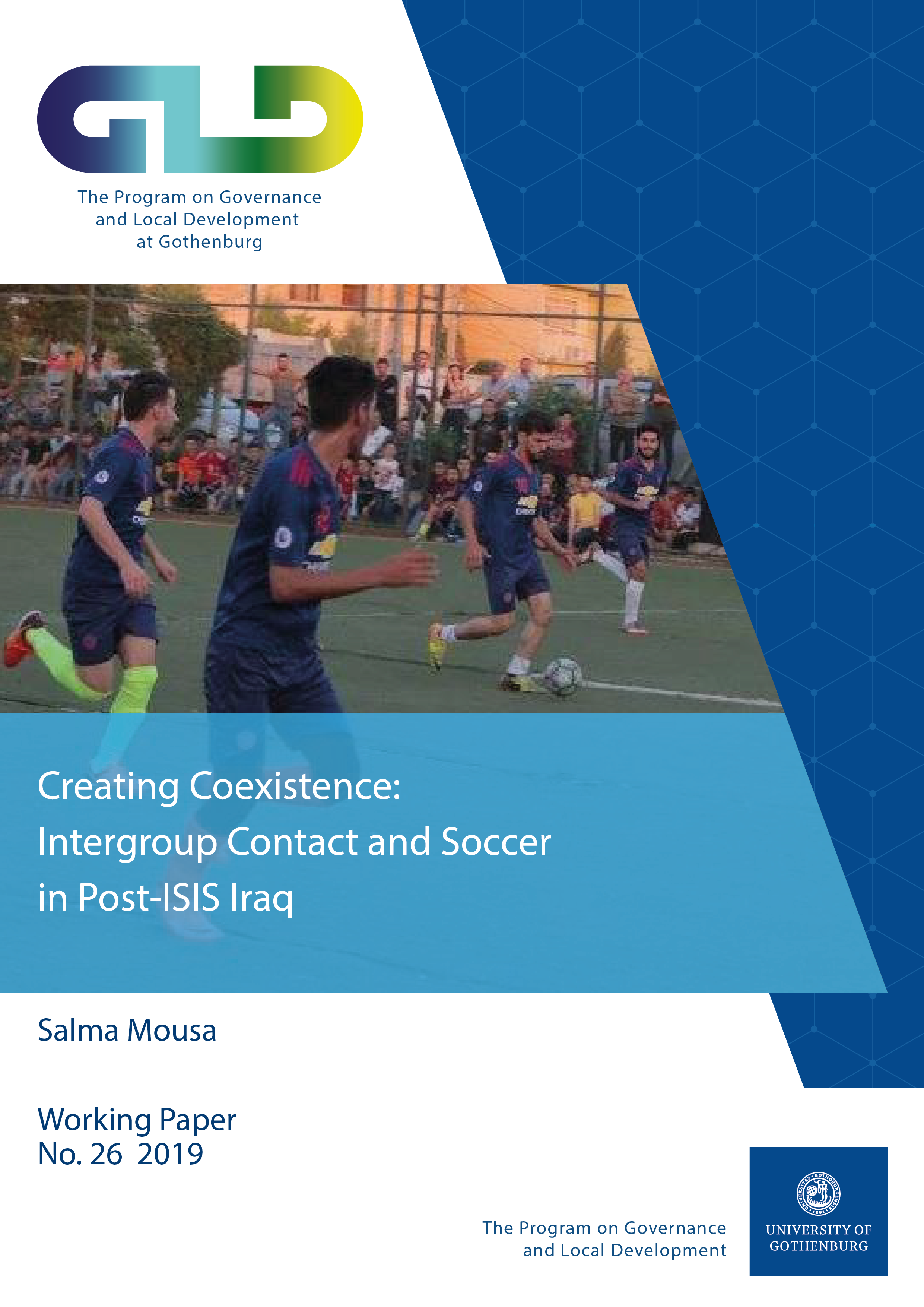No.26 Creating Coexistence: Intergroup Contact and Soccer in Post-ISIS Iraq
Salma Mousa
Abstract
Can intergroup contact build social cohesion after war? I answer this question by randomly assigning Iraqi Christians displaced by ISIS either to an all-Christian soccer team or to a team mixed with Muslims. I find persistent changes to behaviors toward Muslim peers: Christians with Muslim teammates are more likely to sign up for a mixed soccer team in the future (12 pp., p < 0.08), vote for a Muslim player (not on their team) to receive a sportsmanship award (16 pp., p < 0.01), and train with Muslims six months after the intervention ends (34 pp., p < 0.01). Players on mixed teams are also more likely to believe that coexistence is possible (63 SDs., p < 0.01). These results seem to be driven by changing norms around social contact as well as a positive experience, with top-performing teams being more likely to patronize a restaurant in Muslim-dominated Mosul. Contact was less effective, however, at shifting generalized tolerance toward Muslim strangers. These findings point to the potential for meaningful social contact to build coexistence after conflict — even if underlying prejudice remains unchanged.
